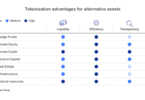Yesterday Tess Rinearson announced on Twitter that she will be leading the new Twitter Crypto team. According to her Tweet, the team will focus on “crypto, blockchains, and other decentralized technologies—including and going beyond cryptocurrencies.” We hope that includes self sovereign identity.
Rinearson also said that her group would be involved with Twitter Blue Sky, a project building an open source decentralized social media protocol. Twitter Crypto will be the center of excellence for all things blockchain at Twitter.
For the last couple of years, Berlin-based Rinearson has been involved with Cosmos and Interchain, which is all about interoperability. Prior to that, she was with Chain.com, which was acquired by InterStellar where she worked for a year, and her new role likely means a move back to the West Coast.
To date, Twitter CEO Jack Dorsey has been a Bitcoin Maximalist, so this may or may not signal a change.
In a July earnings call, Dorsey spoke about Bitcoin as a “global native currency” and outlined how it would be incorporated into Super Follows, commerce, subscriptions and Tip Jar.
Many now consider the future of blockchain as multi-network so tapping someone like Rinearson and her knowledge of interoperability makes sense.
Why has Dorsey been a Bitcoin Maximalist?
Some Bitcoin Maximalists take that position out of greed. Some don’t see the potential of crypto economics and think it’s a Ponzi scheme. And for others, it’s a philosophical position. Based on previous Dorsey Tweets, we’d speculate it’s the latter case for Dorsey.
Bitcoin did not start with an ICO and hence is viewed as genuinely owned by the community. Satoshi’s tens of billions worth of holdings are untouched. In the decentralized world, this blockchain incarnation focused on the community is considered a “Fair Launch”. That said, there is an increasing number of institutional Bitcoin holders.
In contrast, most blockchains either ran an ICO or a “free” initial coin drop where the founders or early coin holders get massive financial benefit from the network’s growth. Given that the community builds the apps and uses the network, which makes it valuable, many consider that unfair.







